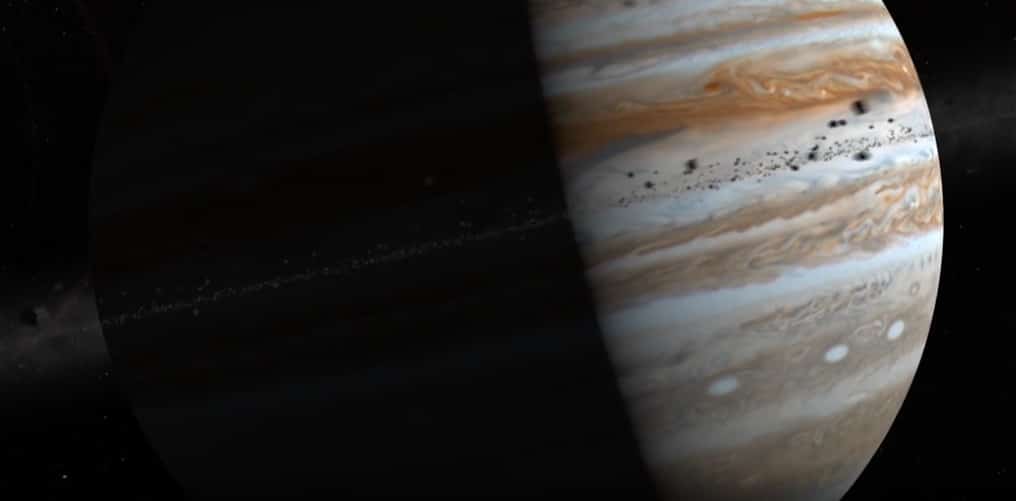
This week NASA’s Unexplained Files looks at why Jupiter is so hot and examines how NASA helped with a murder case that had gone cold.
Jupiter lies out past Mars and is the largest planet in our Solar System. This huge gas giant is over twice as big as all the other planets combined.
Being so far away from the Sun scientists expected it to be much cooler than the Voyager probe discovered when it past the planet.
Jupiter’s atmosphere is mainly hydrogen with some helium and scientists expected temperatures in the upper atmosphere to be around 200 Kelvin or -100 °F. Instead Voyager detected temperatures in the region of 1300 °F, something that was difficult to explain.

However, in 2016 scientists working at an observatory in Hawaii gathered some data from the planet’s giant red spot. The spot is a collection of huge storms and they think that it’s possible the storms send out powerful sound waves that hit the thin upper atmosphere, where their energy is released in the form of heat.
Also on this episode, find out how NASA helped solve a murder case that had gone cold and the strange thing that the Curiosity Rover found on Mars.
NASA’s Unexplained Files airs Wednesdays at 9 PM on Science Channel.